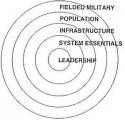Economically, Dubai is most famous for its oil and gas production, which only makes up less than 6% of the state's economy, and only 2% of the UAE's economy. Dubai contributes 82.2% of the UAE's non-oil exports.
The non-oil exports that come from Dubai are mainly traditional products and commodities and manufactured items. The traditional producs include things such as dried and frozen fish, dates, hides, and scrap metals. Most of these exports go to other Gulf States, India, Pakistan, and Sri Lanka. This sector is minor compared to the manufacturing exports.
The manufactured products that Dubai exports include liquefied gase, clothing, cement, electric cables and aluminum ingots. The majority of the importers of these goods are Japan, India, China, Taiwan, and the United States.
Source







 .
.


 ? As to their "productive operations", you might want to check out how the auto industry started to operate in the mid-1980's. Basically, what they would do is move in capital, work with local elites to establish production plants, and recoup their entire investment, with a decent profit (~20% or so) over 5 years. After that, they could walk away from the plants. The trick was that they were using a floating pool of capital and retaining control over distribution of the final product (i.e. market access). So, yes, the locals would have jobs for 5-6 years, but the auto companies also had major political leverage after that.
? As to their "productive operations", you might want to check out how the auto industry started to operate in the mid-1980's. Basically, what they would do is move in capital, work with local elites to establish production plants, and recoup their entire investment, with a decent profit (~20% or so) over 5 years. After that, they could walk away from the plants. The trick was that they were using a floating pool of capital and retaining control over distribution of the final product (i.e. market access). So, yes, the locals would have jobs for 5-6 years, but the auto companies also had major political leverage after that.





Bookmarks